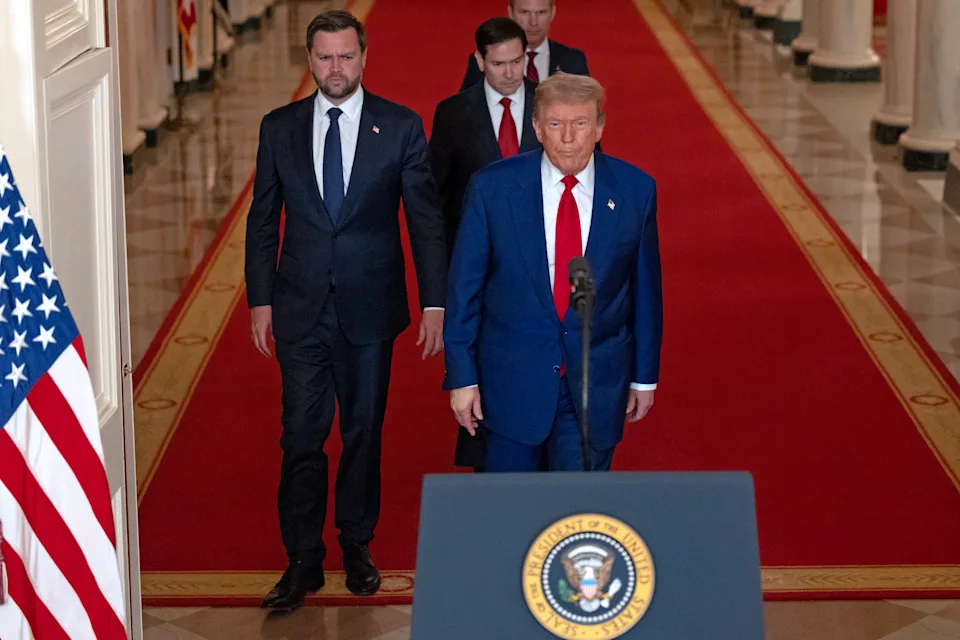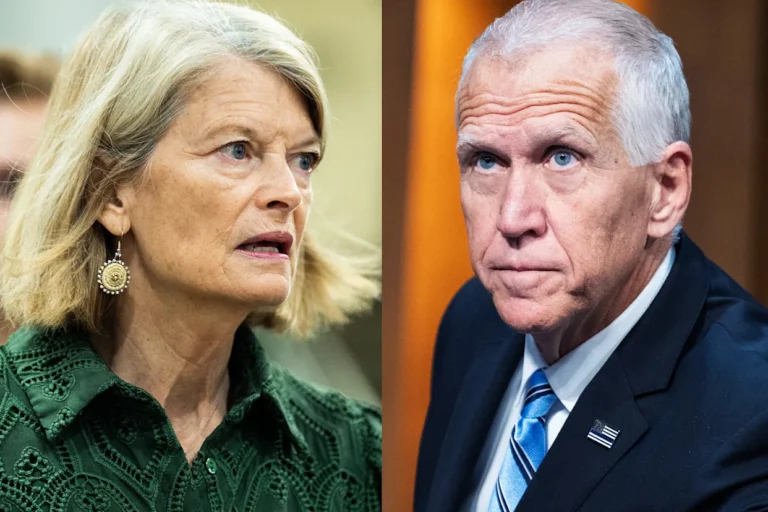
Iran’s parliament pushed the nation to close the Strait of Hormuz, according to state media, but left the final decision to choke off the key waterway to Iran’s Supreme National Security Council.
Vice President JD Vance shot back Sunday that such an action “would be suicidal” for Iran as “their entire economy runs through the Strait of Hormuz.”
Yet the Islamic Republic appears to be a step closer to the unprecedented action that could spike prices around the world, with about 20% of global oil and gas flowing through the narrow passageway connecting the Persian Gulf to the rest of the globe.
It was just one front — but perhaps one with the greatest economic consequences — after President Trump ordered an attack on three of Iran’s nuclear sites and drew the US into the ongoing war.
Some experts are skeptical Iran will ever follow through, as the country has threatened the strait multiple times over the years — but historically opted for less disruptive measures.
In comments Saturday night, Trump described the move as a means to bring Iran to the negotiating table. But it immediately set off fears of additional violence and retaliation in the days ahead.
For their part, Iranian leaders say any talks are on hold but haven’t outlined exactly how they are going to respond.
“The US is not diplomatic and only understands the language of force and threats,” said Iranian Foreign Minister Abbas Araghchi, according to Mehr News, the country’s semi-official news agency.
Araqchi also reportedly avoided directly commenting on the strait, saying “a variety of options are available to Iran.”
The action also comes after Iranian General Mohsen Rezaei, an Iranian leader who has a seat on the decision making Supreme National Security Council, reportedly said on state television hours before the attack that the country would move to close the strait if Trump entered the war.
Watching for a ‘worst-case scenario’
Economists will be closely watching the strait because of global economic repercussions that would almost surely follow any disruptions there.
Analysts at JPMorgan Chase (JPM) have called a blockage there a “worst-case scenario” and suggested the result could be global oil prices reaching $120 a barrel and pushing inflation in the US to 5%.
But as Bloomberg energy columnist Javier Blas re-emphasized over the weekend, it benefits Iran to “use low-ranking officials to talk about closing Hormuz,” because it sows instability. But it would actually damage Iran to follow through.
Indeed, closing the strait would be felt in Iran’s own oil sector and cut off a key revenue source for the country’s leaders.
Iran uses the waterway for its own energy exports, which totaled over 1.3 million barrels of oil a day 2023 according to CEIC.
As Noam Raydan, who studies energy and maritime risks at the Washington Institute for Near East Policy, put it to Yahoo Finance last week before the attacks: “If its oil production and terminals are badly damaged, we can then seriously consider the possibility of Tehran shutting the strait.”
So far, that doesn’t appear to be the case, with Israel striking one oil refinery in Tehran but so far apparently leaving the country’s oil infrastructure largely in place.
Most Iranian oil flows to China but the closing the Strait of Hormuz would jeopardize a wider array of oil and natural gas sources with Saudi Arabia, Kuwait, Iraq and others using that waterway.
The overall landscape has led Trump administration to express tempered confidence Sunday that the Strait of Hormuz option is one that won’t be taken.
“That would be suicidal,” Vance said Sunday on NBC of Iran taking that step.
“If they want to destroy their own economy and cause disruptions in the world, I think that would be their decision,” he acknowledged “but why would they do that? I don’t think it makes any sense.”
Secretary of State Marco Rubio added on Fox News that Iran closing the strait would be “another terrible mistake…and we retain options to deal with that.”
Ben Werschkul is a Washington correspondent for Yahoo Finance.









